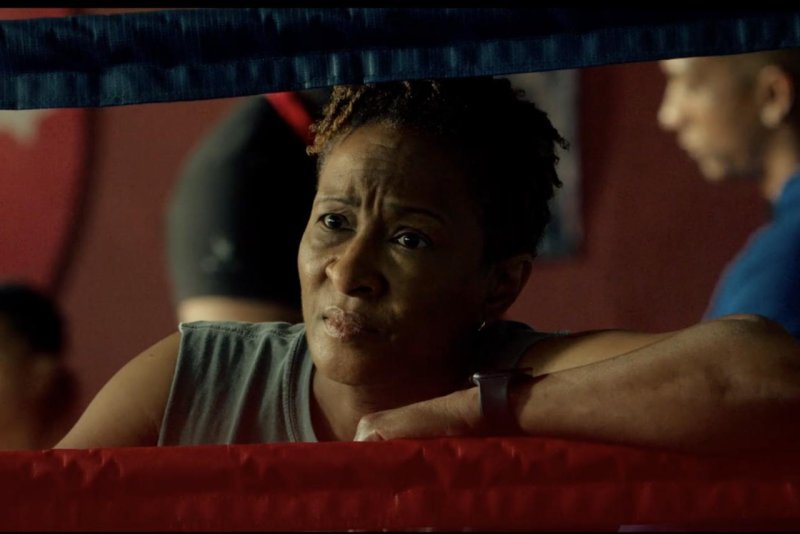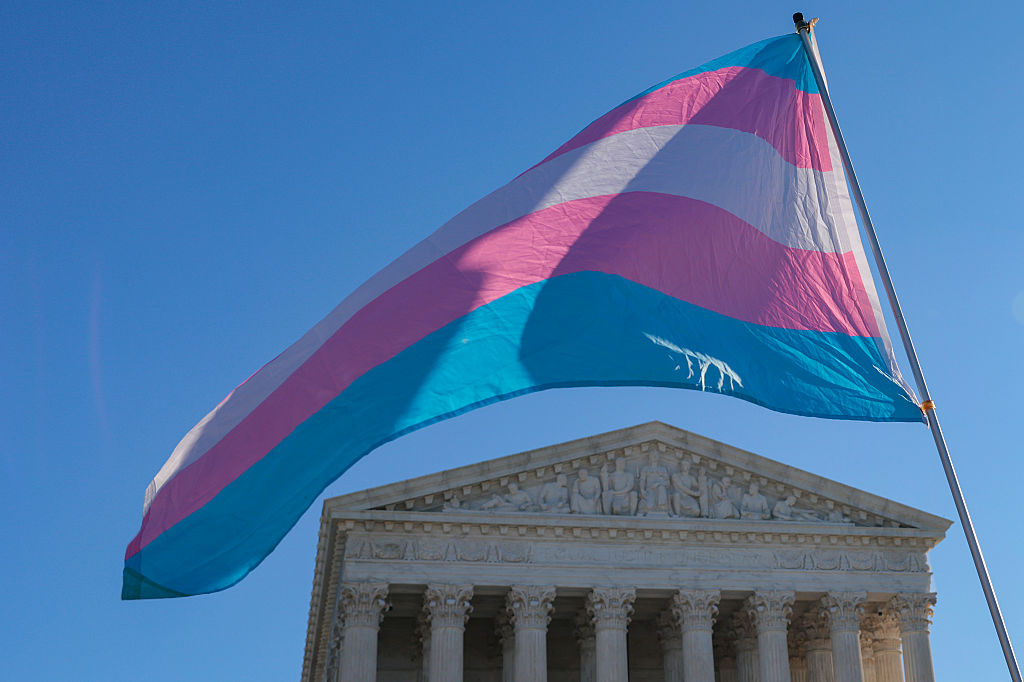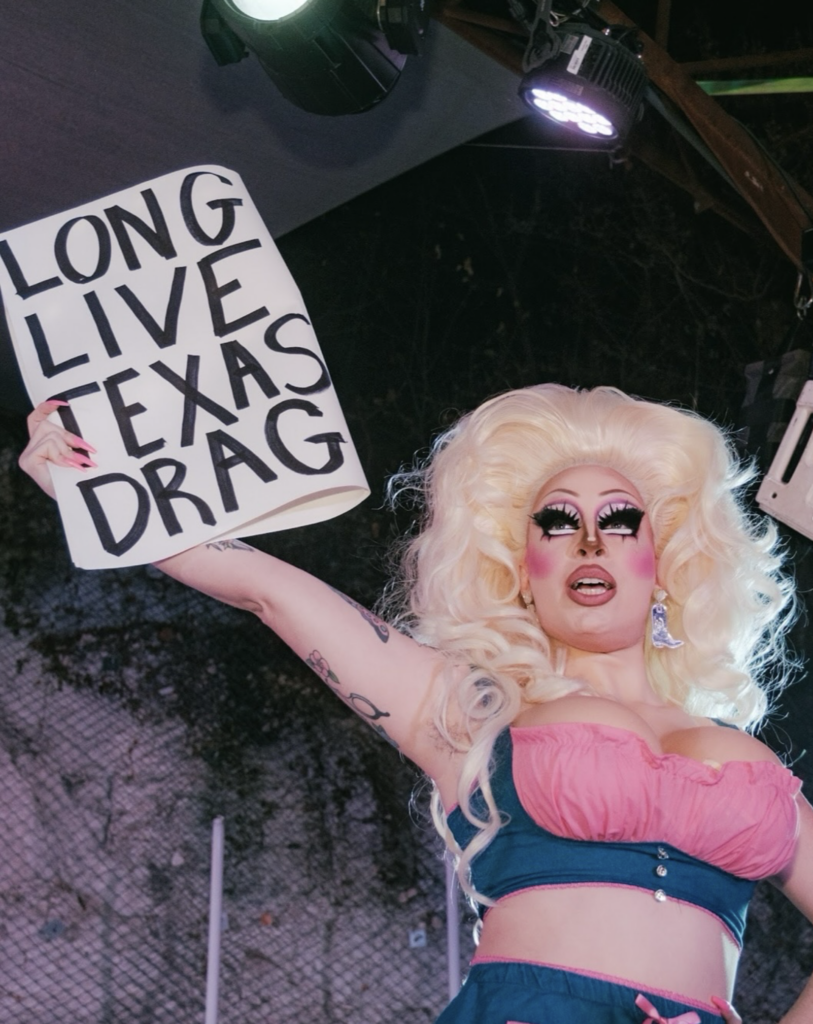The Drunk History ‘Stonewall’ Segment Taught Me More About Gay History Than A Text Book Ever Did

Grab a drink and learn your history.
It’s hard to know where to start with Stonewall. Anyone can look up the Wikipedia entry and know the basic facts: on June 28, 1969 (almost 50 years ago now!), a group of queers were fed up with police trying to raid the Stonewall Inn in Greenwich Village, Manhattan and fought back. The effects of the riot were far and wide, leading to the Gay Liberation Movement and, more specifically, the first Pride parades, outreach to LGBTQ+ youth who’d been ousted by their own families, and the names that would live on in gay history: Marsha P. Johnson and Sylvia Rivera, two trans women of color who started the riot.
But what if you want to learn more, get inside the heads of those who threw the first bricks, really feel what it was like to be there?
Start here: don’t watch “Stonewall.”
It’s possible Roland Emmerich (the German “auteur”—quotations intended—behind “Independence Day,” “The Day After Tomorrow,” and, most notably, the 1998 stinker “Godzilla”) meant well with this 2015 film. However, impact overpowers intent. And the impact of “Stonewall” stinks.
The narrative centers not on Johnson and Rivera, both trans women of color, but on a fictional white gay man and his coming of age. Because no one has ever seen this pop culture representation before (insert eyeroll emoji here). Evidently, the American public felt the same. According to IMDb, “Stonewall” cost $13.5 million to make and grossed less than $200,000.
Ike Holter, a queer black playwright from Chicago, fared better with “Hit the Wall,” an intense theatrical adaptation that features a live rock band and was staged at the actual Stonewall Inn in 2018. (Heads up to gay Chicagoans: Steppenwolf Theater Company will present a staged reading version of “Hit the Wall” June 28th-29th in honor of Pride Weekend.) However, if you don’t live near a major city or have 90 minutes to spare, I have a six-minute Stonewall primer that will leave you feeling educated, empowered and emotional. Come with me and experience “Drunk History: Stonewall.”
For those not familiar, “Drunk History” is a Funny or Die webseries-turned-show on Comedy Central in which actors and writers recall their favorite anecdotes of the past while growing increasingly wasted. Celebrities then reenact the stories that are all one hundred percent true, no matter how slurred. Since its 2013 premiere, “Drunk History” has covered everything from the 1974 abduction of Patty Hearst (with Kristen Wiig and Terry Crews) to the legendary showdown of Alexander Hamilton and Aaron Burr (featuring Alia Shawkat and Aubrey Plaza and narrated by Lin-Manuel Miranda). All the episodes are hilarious and insightful, but the 2016 Stonewall segment, narrated by writer-comedian Crissle West as part of an episode entitled “Bar Fights,” stands out as one of the greats. Here’s why:
Fabulous trans actresses
Trans actors should play trans people. But, even in the Laverne Cox era, Hollywood doesn’t always get the memo. Luckily, “Drunk History” did it right. Both Alexandra Grey (Marsha P. Johnson) and Trace Lysette (Sylvia Rivera) are trans IRL and had breakout roles on the Amazon series “Transparent.” It’s no wonder this “Drunk History” episode was nominated for two Primetime Emmys and a GLAAD Media Award. Grey and Lysette are fierce in their late 1960s ensembles of a bright yellow coat trimmed with marabou and a tight striped jumpsuit that still looks hot by 2019 standards. Moreover, they bring a lifetime of experience to the roles of trans women of color who had enough to deal with before the cops burst in to shut down their favorite bar. In just six minutes, Grey and Lysette bring glamour, empathy, and woman-warrior realness to the two underdogs who threw bricks and started a revolution.
Sneaky education of gay and straight people
“[If] comedy is what lures people to watch a show about the birth of the Gay Liberation Movement–if comedy is the in, the thing that cracks the door open–then so be it,” actress Lysette told Out Magazine in 2016. She hits on one of “Drunk History’s” greatest strengths: schooling people through liquored-up reenactments and making them learn while they’re laughing. In this Trump Twitter-rific era, education and conversation are paramount, and the past (both good and bad) must not be forgotten. Until the Stonewall Riots and other pivotal moments in queer history make it into actual history books, word of mouth (and cable and Internet) is key. It’s hard to forget the image of Johnson angrily pulling off her wig and breaking a mirror with “the shot glass heard round the world.” Who knows how many people of every sexual orientation learned about Stonewall through less than ten minutes of “Drunk History?”
A six-minute journey that’s both accurate and uplifting
Inebriated or not, the “Stonewall” segment of “Drunk History” is a master class in micro-storytelling. West is no-bullshit, tossing off one-liners that seem to get more clever as she gets more plastered. However, she doesn’t shy away from the dark events that led to the riot in the first place, or the sense of community that Stonewall prompted. At the end, she pays tribute to Johnson, who was not only black at a time of severe civil unrest, but also queer and trans. Each “Drunk History” segment pivots off of the initial narrative, and the early shots of a teenager thrown out of their home and forced to live on the streets coupled with young people furtively looking around before entering the Stonewall Inn and letting loose are incredibly poignant, as is Johnson leaving New Jersey dressed as a man and emerging in Manhattan in her fabulous true form like Wonder Woman with a wig of truth.
The spirit of oppression followed by violent victory is prevalent throughout the segment, from its secretive beginnings to its triumphant end, when Marsha, Sylvia and a crowd of proud queers find the young person tossed out at the beginning and literally lift them up and out of the doorway they were sleeping in to bring them into the fold. In many ways, this segment is LGBTQ+ history in a nutshell: circumstances ranging from secretive to downright horrible, an uprising against powerful oppression, and the celebration of the indomitable spirit that keeps us fighting.
The segment’s closing words say it all: “Bow down.”












